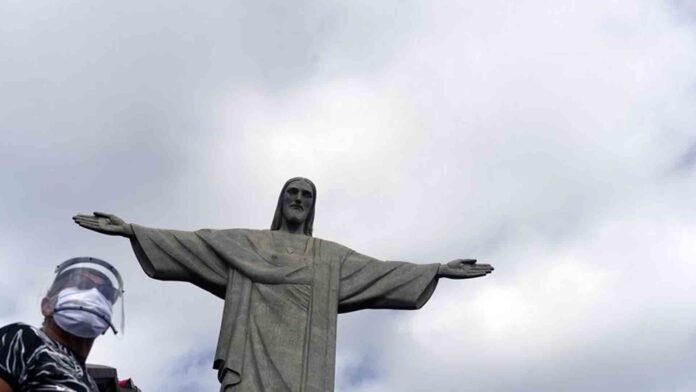Latin America and the Caribbean have reported at least 10 million confirmed coronavirus cases and 370,000 deaths, plunging the region into its worst health, economic and social crisis in recent history.
The virus has infected more than 38 million people worldwide and killed over 1 million since first emerging in Wuhan, China in December, according to a tally by US-based Johns Hopkins University.
Mexico
Mexico expects to vaccinate 116 million citizens against the coronavirus through the Covid-19 Vaccines Global Access Facility (COVAX) and three agreements with British pharmaceutical company AstraZeneca, American pharmaceutical corporation Pfizer and Chinese vaccine company CanSino Biologics, the foreign ministry said Tuesday.
Mexico’s government has made a USD159.88 million payment to secure access to Covid-19 vaccines through the World Health Organization-backed COVAX plan to immunize a fifth of the country’s roughly 129 million people.
“As of December, no later than the first quarter of next year, we would like to start vaccinating,” President Andres Manuel Lopez Obrador said at his daily press conference.
Mexico has confirmed more than 821,000 coronavirus cases and nearly 84,000 deaths.
Cuba
After seven months of restrictions, Cuba relaxed coronavirus quarantine measures, allowing shops and government offices to reopen and welcoming tourists at airports across the island except in Havana, where there was a peak in recent days.
The authorities recognized the need to boost the island’s economy, which was hit by pandemic restrictions and recent sanctions imposed by US President Donald Trump’s administration. Health authorities on the island have reported around 6,000 Covid-19 cases and 123 deaths.
Venezuela
Officials in Venezuela have extended flight restrictions until Nov. 12. The measure first went into effect on March 12 as part of the nation’s efforts to curb the spread of the coronavirus.
Most international passenger flights to and from the country have been suspended, including domestic flights. All land border crossings remain closed.
Venezuela reports 83,756 cases and just over 700 deaths.
Brazil
Brazilian Congressman Celso Russomanno said Tuesday the homeless population could be more resistant to the coronavirus.
Russomanno, who leads the race in Sao Paulo municipal elections which will be held in November, said cases of Covid-19 have been very occasional among the homeless population and drug addicts.
“Maybe they are more resistant than us because they live all the time in the streets and they have no way to shower every day,” he said.
Brazil registered 10,220 infections over the last 24 hours and 309 fatalities, the nation’s health ministry said Tuesday, bringing total confirmed cases to 5,113,628 and deaths to 150,998.
Panama
After nearly seven months of restrictions due to the coronavirus outbreak, international flights are arriving and departing from Panama’s Tocumen Airport again. International travelers must submit a negative Covid-19 test before boarding flights to the country.
Panama has confirmed more than 121,000 coronavirus cases and at least 2,500 deaths.
Aruba
Officials in Aruba are inviting Americans to relocate visa-free for three months and work remotely amid the coronavirus pandemic and offering tourists deals and discounted rates at local hotels, chain resorts and rental homes.
The Aruba Tourism Authority launched the “One Happy Workation” program this week, inviting anyone with a valid US passport to relocate to the island for 90 days. (PNA)






